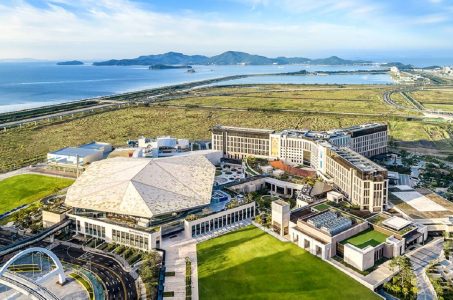Philippines Stays on Gray List Over Casino Junket Money Laundering
Posted on: March 8, 2022, 07:19h.
Last updated on: March 8, 2022, 01:24h.
The Philippines will remain on a global money-laundering “gray list” until it can mitigate risks associated with casino junkets, the Financial Action Task Force (FATF) has said.

Paris-based FATF is an intergovernmental organization founded by the G7 to combat money laundering and terrorism financing. A FATF gray-listing exerts pressure on a nation’s economy by stymying its banking sector, making it less agile and more expensive to engage with.
FATF acknowledged Friday that the Philippines had made progress in improving its anti-money-laundering (AML) and counter-terrorist financing (CTF) regime. But it identified several areas where such scrutiny could be improved.
As well as tightening controls on the junket sector, these include better supervision of designated non-financial businesses and professions, such as jewelry dealers, real estate brokers and developers, and service providers for financial businesses.
Bangladesh Bank Heist
The world’s attention was drawn to the Philippines’ lax AML controls in the aftermath of the infamous Bangladesh bank heist five years ago.
In February 2016, hackers now suspected of working for North Korea flooded the New York Fed with requests to transfer almost $1 billion from an account used by the government of Bangladesh. Five of 35 requested transactions were processed, amounting to around $101 million before further payments were blocked.
Of these transactions, $20 million was traced to Sri Lanka and quickly recovered. The rest ended up in several bank accounts in the Philippines, which had been opened the same day under false names.
From there, with the assistance of several junket operators, the funds disappeared into the country’s casino sector. Most remains unrecovered.
Embarrassed Into Action
Prior to the pandemic, the country’s gaming sector had been enjoying rapid growth, buoyed by improving relations with China and a visa-on-arrival policy for Chinese tourists. But Philippine lawmakers were embarrassed by the Bangladesh bank heist, which drew criticism from the World Bank.
In 2017, President Rodrigo Duterte signed legislation that introduced transaction-reporting thresholds to the casino industry for the first time. It also gave authorities new powers to freeze funds if they were suspected of being linked to crime.
Previously, casinos were exempt from the Philippine Anti-Money Laundering Act of 2001, which was passed largely as a measure to avoid being blacklisted by FATF.
Now, officials told Business World Online this week they hope to be removed from the gray list altogether by Jan. 2023.
Mel Georgie B. Racela, executive director of the Philippines anti-money laundering council, said the country’s gaming regulator, PAGCOR, was currently “identifying risks posed by junket operations and will subsequently implement necessary measures to mitigate these risks.”
Related News Articles
Okada Manila Merging with Ader SPAC in $2.6B Single Casino Transaction
South Korea’s Foreigner-Only Casinos See Mixed Performances in October
Macau Casino Stocks Worth Revisiting After Declines, Says Analyst
Most Popular
FTC: Casino Resort Fees Must Be Included in Upfront Hotel Rates
Genovese Capo Sentenced for Illegal Gambling on Long Island
NBA Referees Expose Sports Betting Abuse Following Steve Kerr Meltdown
UPDATE: Former Resorts World & MGM Grand Prez Loses Gaming License
Most Commented
-
UPDATE: Whiskey Pete’s Casino Near Las Vegas Closes
— December 20, 2024 — 30 Comments -
Caesars Virginia in Danville Now Accepting Hotel Room Reservations
— November 27, 2024 — 9 Comments -
UPDATE: Former Resorts World & MGM Grand Prez Loses Gaming License
— December 19, 2024 — 8 Comments -
FTC: Casino Resort Fees Must Be Included in Upfront Hotel Rates
— December 17, 2024 — 7 Comments
















Last Comment ( 1 )
Sorry no pity here. Look at Kuwait n what they do to the women. It is not PI problem it’s China. Come take ur unwanted bugs.